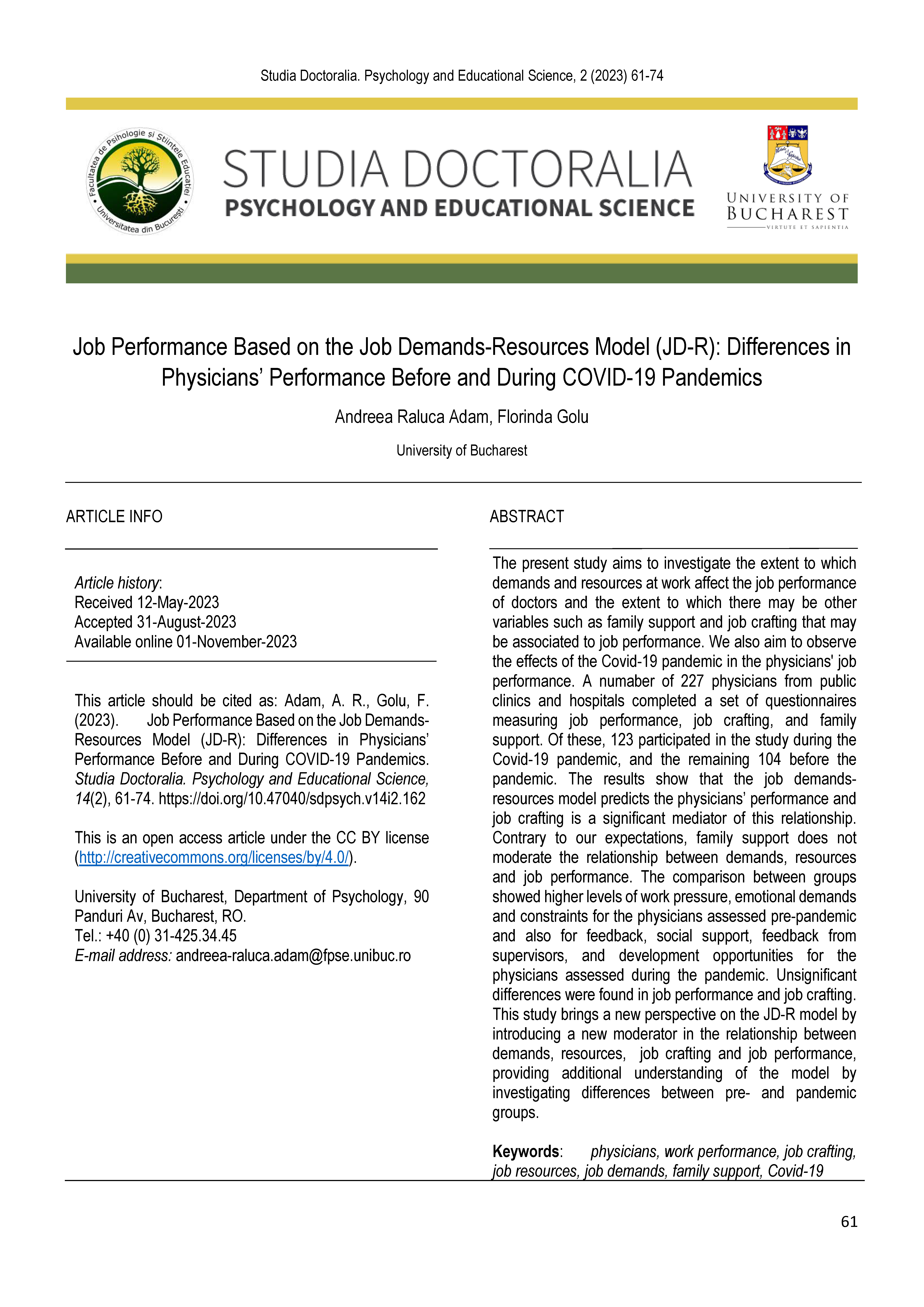Job Performance Based on the Job Demands-Resources Model (JD-R): Differences in Physicians’ Performance Before and During COVID-19 Pandemics
DOI:
https://doi.org/10.47040/SDPSYCH.V14I2.162Keywords:
physicians, work performance, job crafting, job resources, job demands, family support, Covid-19Abstract
The present study aims to investigate the extent to which demands and resources at work affect the job performance of doctors and the extent to which there may be other variables such as family support and job crafting that may be associated to job performance. We also aim to observe the effects of the Covid-19 pandemic in the physicians' job performance. A numaber of 227 physicians from public clinics and hospitals completed a set of questionnaires measuring job performance, job crafting, and family support. Of these, 123 participated in the study during the Covid-19 pandemic, and the remaining 104 before the pandemic. The results show that the job demandsresources model predicts the physicians’ performance and job crafting is a significant mediator of this relationship.
Contrary to our expectations, family support does not moderate the relationship between demands, resources and job performance. The comparison between groups showed higher levels of work pressure, emotional demands and constraints for the physicians assessed pre-pandemic and also for feedback, social support, feedback from supervisors, and development opportunities for the
physicians assessed during the pandemic. Unsignificant differences were found in job performance and job crafting. This study brings a new perspective on the JD-R model by introducing a new moderator in the relationship between demands, resources, job crafting and job performance, providing additional understanding of the model by investigating differences between pre- and pandemic groups.





